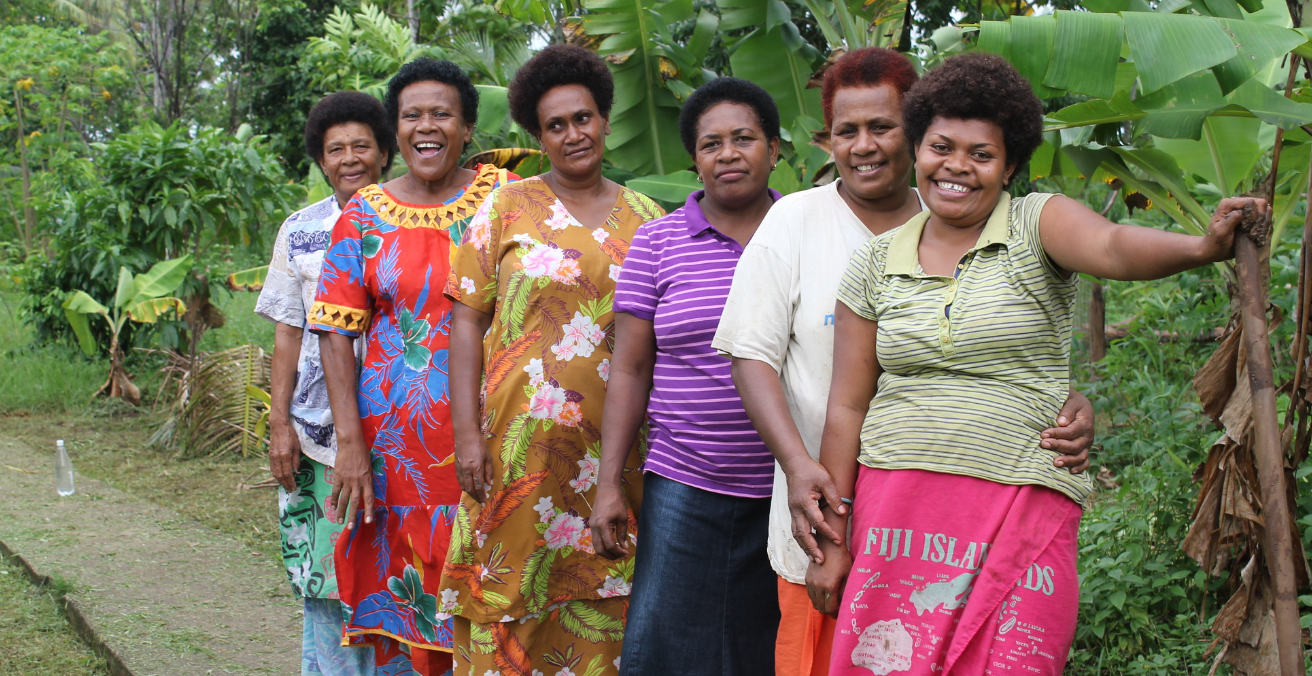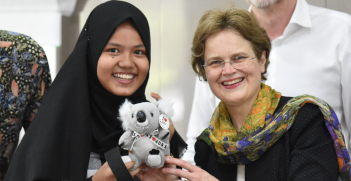Gendered (In) Security – A Pacific Reality

Pacific populations have been at the forefront of natural disasters and the climate crisis for a long time. Crises are particularly detrimental to women and those of gender diversities.
As fears continue to rise globally on the uncertainties of the global health pandemic COVID-19, the Pacific is no exception. Having recently seen Samoa come out of a measles outbreak has left many Pacific communities assured that we shall overcome (a popular tune at Pacific gatherings now). However, there is a crisis that has been lurking for years – in Asia and the Pacific, the ten most devastating disasters of 2019 were climate and weather related. Climate change and natural disasters are threat multipliers and particularly challenging for peace and security at local and global levels. Natural disasters such as tropical cyclones, hurricanes, earthquakes, floods, and droughts have increased in frequency and intensity. Combined with a health pandemic, it becomes a multifaceted crisis. The impacts of these disasters are not only short-term devastation, but also longer-term impacts on socio-economic well-being. Inherently disasters and crises exacerbate existing inequalities, reinforce vulnerabilities, and are gendered.
Gendered analysis is crucial in understanding the underlying issues and being able to address them holistically. Evidence that can inform action, investment, and implementation is crucial given the urgency of the climate crisis. Prior research shows that climate change affects women, peace, and security and that gender-based violence is a prominent issue in the Pacific region. Evidence from communities that have been affected by immediate- and slow-onset impacts to the climate shows an increase in intimate partner violence, and sexual and gender-based violence. For example, communities affected by the unsustainable fishing and logging in Solomon Islands, flooding and cyclones in Fiji, resettlements from the Carteret Islands in Papua New Guinea, forced migration in Kiribati, and many others have seen an increase in gender-based violence. The unprecedented rates of intimate partner violence and gender-based violence in the Pacific is further compounded by daily impacts of environmental degradation, inconsistent weather patterns, and the slow and fast impacts of climate change.
Research by Monash GPS and Action Aid on gender responsive alternatives to climate change highlighted that (i) mutual recognition of knowledge (scientific and local) could strengthen community resilience; (ii) meaningful participation of women in decision making led to longer term sustainable initiatives; and (iii) collective action, particularly from women’s groups, enhanced integration of security needs of marginalised populations during crisis response and adaptation initiatives. It is crucial to recognise that women and gender diverse populations are key actors in the road to recovery from any crisis. Informal and community-based groups have been key to community resilience post-disasters. The Women’s Weather Watch has been an active network of community members connecting and supporting each other through natural disasters in the Pacific. The Women’s Weather Watch exists informally and allows women to share knowledge and best practices efficiently. Additionally, an analysis of the use of social media during Cyclone Winston in Fiji showed this was an increasingly popular platform for communication and seeking support during times of crisis. It complemented mainstream media and provided Pacific voices a platform to share their experiences. For example, Cayla Tikaram live tweeted her experience through Cyclone Winston from inside a cupboard.
For Pacific communities, adaptation measures such as relocation and resettlement that were once considered last resorts are now a reality for many. In preparation for an increase in human displacement, the Fiji government has launched guidelines for planned relocation and displacement induced by climate change. In addition to the guidelines, Fiji has initiated a Climate Relocation and Displaced Peoples Trust Fund for Communities and Infrastructure which is seed funded through a portion of the Environment and Climate Adaptation levy (ECAL). The trust fund gained further support from New Zealand’s prime minister, Jacinda Ardern, who concluded her February visit to Fiji by committing $2 million to the trust fund, which comes from a larger package of $150 million dedicated to Pacific climate projects. Ardern acknowledged, “While we must do all we can to mitigate and prevent the full frontal assault of climate change we must also prepare, and that’s exactly what’s happening here in Fiji.”
Australia and New Zealand have been strong, long-standing partners for the Pacific island nations. Over the years, multiple programs have been initiated bilaterally or multi-laterally. Prime Minister Scott Morrison, in his travels to the Pacific over the last year, has relentlessly highlighted the need to move away from a transactional approach to one that makes us stronger as a family, for example when emphasising the Pacific Step-Up program and the Vuvale partnership. The Pacific Step-Up was launched as a new chapter in relations with our Pacific family, one that aimed to support Pacific priorities and strengthen coordination between the nations. The Vuvale partnership between Fiji and Australia is an interesting one; especially considering the sentiments expressed following the Pacific Islands Forum meeting in Tuvalu. These partnerships reiterated Pacific leaders’ commitment to the Pacific Leaders Gender Equality Declaration and guided by DFAT’s Gender Equality and Women’s Empowerment strategy. Nicole George highlighted how the strategy is an instrumental tool in Australia’s leadership in prioritising gender equality and strengthening partnerships in the Pacific through empowering initiatives, such as Pacific Women.
Gender matters and this is no longer open for debate. It is critical to learn from past initiatives and strengthen international cooperation if we are to address global crises. Recognising that the Pacific community is high risk, a holistic approach informed by evidence and lessons learnt needs to be undertaken to inform implementation initiatives. The devastation caused by climate change and natural disasters in the Pacific can be mitigated through concentrated efforts in ensuring meaningful gender inclusion in decision making spaces and through transparent and honest consultations and collaborations that are long-term and sustainable. Investment in social and economic sectors (e.g. housing, fisheries, agriculture), and climate resilient infrastructure which responds to gender diverse needs and are critical to safeguard during times of climate and natural crisis. Evidence that has been collated over years must be used to enhance and strengthen response and implementation mechanisms. It is essential that we take climate change and natural disaster impacts as factors affecting regional peace and security and act upon it accordingly.
Betty Barkha is a PhD Candidate with Monash University, Centre for Gender, Peace and Security (Monash GPS). Her research is focuses on gendered impacts of climate change in the Pacific. She is also on the Board of Directors for CIVICUS and Association of Women in Development (AWID) and an advisor to FRIDA Young Feminist Fund.
This article is published under a Creative Commons Licence and may be republished with attribution.





